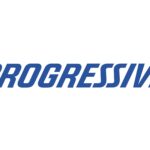You’re an independent agent, primarily writing property casualty coverages for individuals. A long-time customer comes in and announces that he’s out of the rat race — he’s quit his job and he’s using his three-quarter ton pick-up truck to haul around his newest acquisition — his lawn care equipment. He’s now a landscaper.
He’s telling you this not because he thinks he needs different coverage on his vehicle now that he’s using it for his business; he’s actually stopping by to see if you need someone to do the grass and hedges.
Sound familiar?
People who have not been in business for themselves sometimes don’t understand the need for different levels of coverage that a commercial enterprise needs. Independent agents can help them understand their needs and put a package together that protects them. Unfortunately we sometimes encounter such information after the insured has had a claim.
As an agent, whether you’ve got the new landscaper or the established paving company with dump trucks, there are a lot of opportunities to leverage your expertise and counsel to be certain the right coverages are in place with the right company to protect your customer.
Business use
Lots of people today use their cars in some type of business and may not even realize that their private passenger auto policy should be rated as business use. Underwriting guidelines will vary from company to company. And if while probing for additional information, you uncover that your customer has a weekend handyman business, or his wife delivers kitchen wares she sells at home shows (when she’s not transporting clients for her real estate business), or his rated daughter sells crafts at the local flea market, you should probably probe further. Oh, and you should definitely review the customer’s needs when he arrives with his landscaping equipment.
Yes, a business use policy will cost more than a private passenger auto policy, but it also affords coverage to the vehicle while being used for business. The worst possible scenario is for a customer to find out that a claim will not be covered because the crash occurred while the vehicle was being used for business purposes.
When to go commercial auto
While underwriting guidelines will vary by company, a private passenger auto policy rated as business use will not cover true “commercial auto” claims. When should someone consider a commercial auto policy? Generally speaking when the vehicle is:
• Used for business and owned by a corporation or partnership;
• Driven by employees;
• Used to haul tools or other equipment weighing more than 500 pounds;
• Used to deliver things like pizza, newspapers or used in the courier business and;
• Heavy enough that it is required to have state or federal filings.
You might also want to quote a commercial auto policy for someone who has a business use private passenger auto policy for your insured. Sometimes the commercial auto policy can actually be less expensive while providing a higher level of coverage.
More coverage
Commercial auto policies generally provide a higher level of liability limits, something most commercial enterprises need. For example, construction companies and others require higher liability limits before certain vehicles can be driven on the property and if the vehicle requires a state or federal filing, those vehicles require higher limits, too.
Other advantages of a commercial auto policy include specialized coverages such as: hired auto and employer’s non-ownership liability; bobtail or non-trucking liability; on-hook towing liability; garagekeeper’s legal liability and; drive other car coverage — coverages you’re definitely not going to find on a private passenger auto policy.
Commercial auto carriers also have specialized claims people skilled in writing estimates and overseeing repairs of larger, more complex vehicles. Don’t underestimate the need for claims specialization for commercial auto customers. Their vehicles are their livelihood — every day they’re without them is a day without revenue. True commercial auto specialists recognize this and work to get vehicles back on the road as quickly as possible.
As an independent agent, a customer with commercial auto insurance needs presents lots of cross-sell opportunities — do they need workers’ compensation or general liability? Do their employees need private passenger auto insurance? Don’t miss this opportunity to grow your business.
You also have an opportunity to leverage the markets you represent to assemble a “best of breed” package of policies for your commercial auto customers and, in doing so, you may find that a package of monoline policies gives your customer specialized coverage, claims expertise and an overall lower premium.
Remember — listen to your customers, be curious and probe for more information. If they’ve got vehicles they use for business, explain the benefits of a commercial auto policy. Your customers will thank you for it.
Dan Clark is the national commercial auto sales manager for Drive Insurance from Progressive. Drive Commercial Auto specializes in fulfilling the commercial auto insurance needs of small businesses, insuring fleets of up to 20 vehicles with policy limits of up to $1 million.
Was this article valuable?
Here are more articles you may enjoy.


 Progressive Records Five-Fold Increase in Q1 Net Income
Progressive Records Five-Fold Increase in Q1 Net Income  Cargo Owners in Baltimore Disaster Face ‘General Average’ Loss Sharing, MSC Says
Cargo Owners in Baltimore Disaster Face ‘General Average’ Loss Sharing, MSC Says  Harvard Study Again Stirs the Pot on Demotech Ratings of Florida Carriers
Harvard Study Again Stirs the Pot on Demotech Ratings of Florida Carriers  Former MLB Player, 3 Others Charged with Staging Auto Accident in Miami
Former MLB Player, 3 Others Charged with Staging Auto Accident in Miami 


